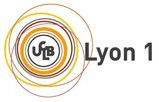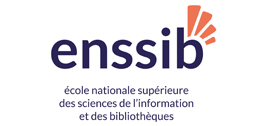Cognitive Systems & Epistemology
| Quand ? |
Le 30/06/2017, de 13:30 à 18:30 |
|---|---|
| Où ? | Salle 207 de l'IXXI - ENS de Lyon, site Monod |
| S'adresser à | Jean-Michel ROY |
| Ajouter un événement au calendrier |
|
The goal of the meeting is to contribute to the development of an epistemological reflection on the contemporary study of cognitive systems in the context of IXXI, in the spirit of the workshop on Causality organized by J.-P. Magué in 2014.
On the one hand, cognitive systems are complex systems by excellence and on-going research on other kinds of complex systems is consequently of direct relevance to the examination of the specific epistemological problems raised by the scientific investigation of cognitive systems, even when one does not subscribe to the approach known as the complex and dynamical approach to cognition (van Gelder, T., 1999. "Dynamic approaches to cognition". The MIT Encyclopedia of Cognitive Sciences. R. Wilson and F. Keil Eds. Cambridge, MIT Press).
On the other hand, the specific epistemological issues raised by the scientific investigation of cognitive systems are themselves of direct relevance to the study of other complex systems, either because they have counterparts in these studies or because they prove to be highly general issues popping up in the investigation of any system.
Speakers
Jean-Michel Roy, Professor of Philosophy, ENS de Lyon
Shaun Gallagher, Moss Professor of Philosophy, University of Memphis
Maxence Gaillard, Post-Doc in Philosophy, University of Rikkyo, Tokyo
Csaba Pléh, Professor of Cognitive Science, IEA & Central European University, Lyon/Budapest
Program
Schedule: 1.30 pm- 6.15 pm
1.30 pm: Introduction : The very idea of Epistemology of cognitive science - Jean-Michel Roy
Abstract: I will defend the view that cognitive science is mature enough to be considered the object of a specific branch of epistemology along other branches like the epistemology of physics or mathematics, and will offer in addition a general definition of the nature and role of the epistemology of cognitive science. According to this definition, with both a descriptive and a normative dimension, epistemology is part and parcel of the elaboration of a cognitive theory and deals with a certain category of problems in theory constructing commonly designated as foundational issues. I will furthermore argue that most foundational issues in cognitive science are in fact rooted in epistemological problems of a higher degree of generality, requiring consequently the close integration of the epistemology of cognitive science into a general epistemology, as well as the full development of such a general epistemology, and in particular of a formal theory of dependency relations between systems and entities.
2.00 pm: Enactivist interpretations of the new mechanist theory - Shaun Gallagher
Abstract: I look at the new mechanist claim that constitution must be understood to be non-causal and the controversies that have popped up around the notion of mutual manipulability (MM) when understood in the framework of interventionist conceptions. If MM is understood in interventionist terms, it's not clear how one can maintain the strict causality-constitution distinction. And if that is so, it undermines the accusations of the causal coupling-constitution fallacy against enactivist and extended mind theories of cognition.
3.15 pm: Instrumentation research in cognitive neuroscience: the historical interplay between development and use of functional magnetic resonance imaging - Maxence Gaillard
Abstract: Since three decades, what has made functional neuroimaging famous as a scientific instrument is undoubtedly its role in investigating the cognitive functions of the brain. At the same time, many methodological and philosophical debates about the new brain imaging technologies emerged. Here I look into the development of a tool, functional magnetic resonance imaging, and explore several aspects of it, from the nature of the signal registered during functional neuroimaging experiments to the behavior of subjects inside the scanner. I describe the subtle interactions between development and validation of the technique, and its use in understanding brain function. This history is eventually a case against a simple hierarchical approachoften underlying the critics of technological equipment of cognitive neurosciencein which an instrument is technologically developed and then applied to some phenomenon of interest. Epistemological issues related to instrumentation research are major ones if we want to make the best use of the tools at our disposal.
4.15 pm: Pause
4.30 pm: Relationships between Cognitive Psychology and Cognitive Science - Csaba Pléh
Abstract: The talk first outlines the birth of American cognitive psychology in a formerly behavior based setting. The basic image of this psychology was ‘man the knower’, who is busy in processing information and creating representations. This move which has gathered several interesting facts and local theories about the mind is usually presented as a total and sudden break with the behaviorist tradition. Some historiographic data shall be presented to show that the break was not as dramatic as to support a Kuhn style total paradigm shift. One interesting aspect of this classical style of cognitive research was its subtract functionalism, the almost Platonic approach to cognition. This was for a while continued till the 1980s, in a still further abstract study of cognition self labeled as cognitive science. Cognitive science, however, soon was moving towards interpreted models of cognition. Different approaches of the last two decades have taken varying stances regarding the centrality and the organization of representations, and regarding anchoring cognition. Neuronal, evolutionary, and social interpretive theories all drop the neutrality of classical cognitive studies. The great hope is to find ways to combine these different interpretations into a comprehensive cognitive science.
4.15 pm: Pause
5.45 pm: General Discussion










